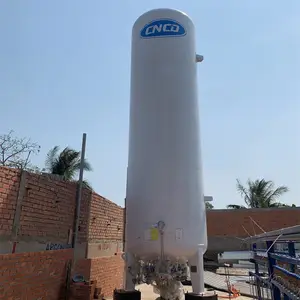
All categories
Featured selections
Trade Assurance
Buyer Central
Help Center
Get the app
Become a supplier












Khám phá sự lựa chọn tuyệt vời của. bể vận chuyển co2 lỏng tại Alibaba.com và tìm những gì phù hợp nhất cho bạn. Bất kể ý định của bạn là gì, bạn sẽ đạt được lý tưởng. bể vận chuyển co2 lỏng cho phép bạn đạt được mức năng suất mong muốn, cho dù sử dụng trong gia đình hay công nghiệp. Các. bể vận chuyển co2 lỏng có nhiều kích thước và kiểu dáng khác nhau để đảm bảo rằng tất cả mọi người đều được bảo hiểm.
bể vận chuyển co2 lỏng được làm bằng vật liệu chắc chắn nhất để giữ cho sản phẩm được bảo mật hoàn toàn bên trong và chỉ được phát hành khi cần thiết. Chúng có khả năng chống chịu lại các lực tác động từ môi trường và chịu được áp lực cao. Các. bể vận chuyển co2 lỏng sử dụng các phát minh công nghệ cao trong quá trình sản xuất để đảm bảo khả năng chống ăn mòn và lực cơ học ở mức độ cao. Do đó, các. bể vận chuyển co2 lỏng lưu trữ khí đốt và các hàng hóa khác trong thời gian dài mà không xảy ra sự cố hỏng hóc và rò rỉ.
Tất cả. bể vận chuyển co2 lỏng tại Alibaba.com tuân thủ nghiêm ngặt các tiêu chuẩn chất lượng để chắc chắn rằng tất cả các giao dịch mua đều mang lại sản phẩm hàng đầu với độ an toàn lý tưởng .. bể vận chuyển co2 lỏng các nhà bán buôn và nhà cung cấp trên trang web được xem xét kỹ lưỡng để đảm bảo rằng chúng tuân thủ các thông số kỹ thuật ISO được đề xuất cho danh mục này .. bể vận chuyển co2 lỏng được thiết kế để thực hiện các chức năng của chúng một cách hoàn hảo trong khi chống lại các mối nguy hiểm như nhiệt. Các van và cơ chế khóa và mở khóa tuyệt vời của chúng điều chỉnh tốc độ giải phóng nội dung của chúng.
Hãy tận hưởng giá trị tốt nhất đồng tiền của bạn ngay hôm nay khi bạn mua sắm tại Alibaba.com. Điều hướng qua trang web và khám phá tuyệt vời. bể vận chuyển co2 lỏng và chọn từ khóa thích hợp nhất. Trải nghiệm mua sắm của bạn sẽ rất thuận tiện vì bạn sẽ tiết kiệm được nhiều thời gian và tiền bạc trong khi mua được các mặt hàng chất lượng cao.